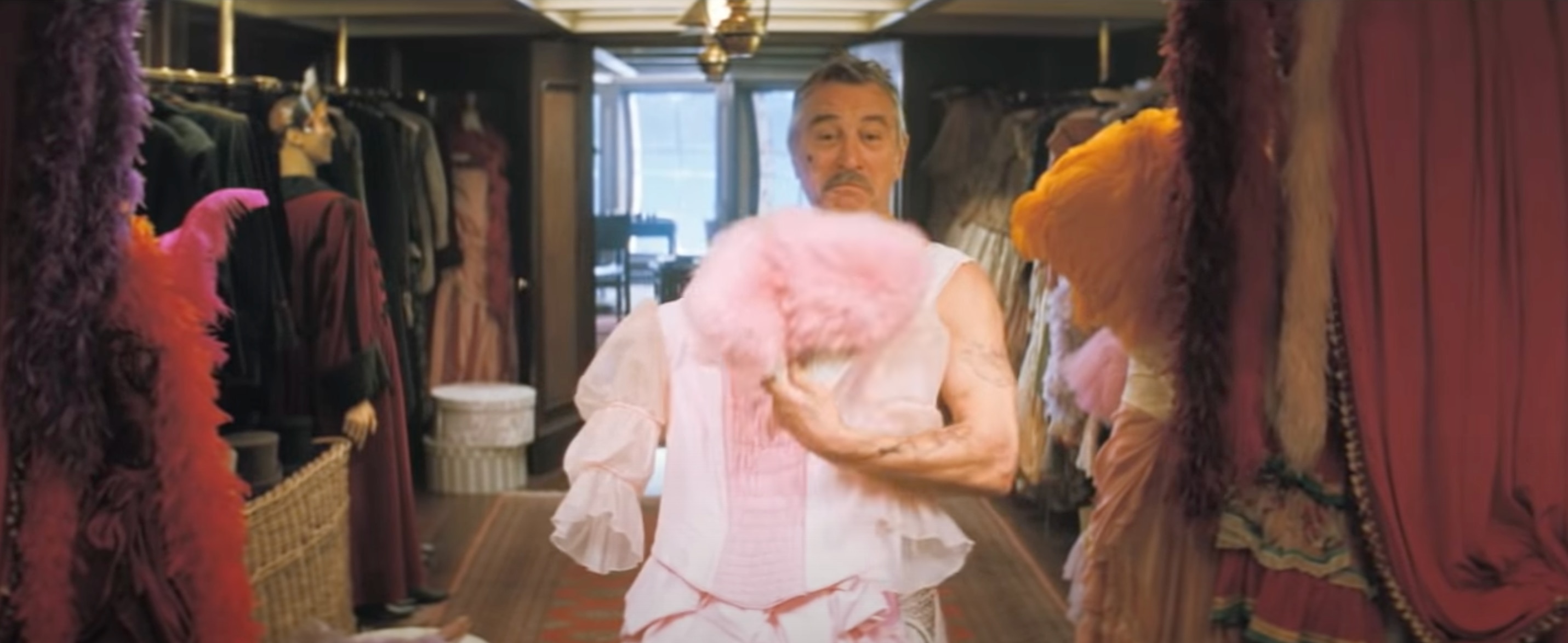Create a free profile to get unlimited access to exclusive videos, sweepstakes, and more!
This Week in Genre History: 'Stardust' gave us Robert De Niro dancing in a pink dress for the culture

Welcome to This Week in Genre History, where Tim Grierson and Will Leitch, the hosts of the Grierson & Leitch podcast, take turns looking back at the world’s greatest, craziest, most infamous genre movies on the week that they were first released.
It is remarkable that Stardust is not one of the biggest flops of the last 20 years. When I first sat down to write this piece, I remembered it as a flop. It sure feels like a flop, doesn’t it? It has all the things a classic flop usually has. It was an expensive adaptation of a beloved project (in this case a Neil Gaiman fantasy comic series and subsequent novel) that is revered by fans but not widely known by the general public. It attempted to corral several different genres and tones at once, including fantasy, romance, and comedy. It featured big stars, including Robert De Niro, Michelle Pfeiffer, Peter O’Toole (there’s always an older legend in one of these), Ian McKellen, and, weirdly, Ricky Gervais. Additionally, it was ambitious in scope and theme, the sort of swashbuckling, big-swing “action-comedy-romance” that is always this close to turning into Gigli.
And yet, it was absolutely not a flop. Stardust not only more than made back its budget, but it was also generally respected by critics, a lot that usually lines up to take potshots at a film like this. It was not a monster hit, and it’s not like it was an awards-season darling or anything. But if you were to line up 10 different scenarios, ranging from “Oscar winner” to “incredible sh**show that wins multiple Razzies,” this would have certainly fallen more to the former end of that spectrum. The film is not talked much about today, and in many ways, it seems to belong to a different era altogether. But you know what? It did fine. It turned out not to be a problem at all.
Fourteen years later, Stardust still danced between all the raindrops.
Why was it a big deal at the time? Gaiman had resisted the idea of a Stardust film for years, particularly after he’d failed in his attempts to make his own version a decade earlier. But he cottoned on to an adaptation a young filmmaker named Matthew Vaughn had been working on. Vaughn would seem a strange choice; he had worked as a producer with lifelong friend Guy Ritchie on Lock, Stock and Two Smoking Barrels and Snatch and directed a solid thriller called Layer Cake with a young unknown actor named Daniel Craig. However, he was probably best known for being married to model Claudia Schiffer. This was the guy Gaiman trusted?
It was that balance of tones, though — the comic and the tense — that Vaughn was going for, one that he’d later bring to Kick-Ass, an X-Men film (after dropping out of the Brett Ratner one to make Stardust) and the Kingsman movies. More than any of those movies, he’d sold Gaiman on a romantic heart. He really did want this to be his Princess Bride. Gaiman ultimately gave in, saying that Vaughn clearly loved the material but wanted to make it his own, which is all he could hope for. Still: The fit seemed odd. But if they could pull this off...
What was the impact? Concerns about how the film would play in the United States, the biggest market at the time (especially with China banning the film, not for political reasons but because there had been too many non-Chinese films released in the country that particular month), were warranted: It opened fourth in the U.S., behind Rush Hour 3, The Bourne Ultimatum, and The Simpsons Movie. But it actually held up strong over the next month, and its biggest revenue came from Europe, particularly the U.K. It would ultimately even win a Hugo Award.
The movie did not end up making quite enough to earn the sequel that Vaughn had always wanted to make. It actually sounds amazing: “The opening scene was Charlie Cox’s character, being the king and throwing out the necklace,” Vaughn told Den of Geek. “This time the necklace goes over the wall and bounces off Big Ben, and you’re suddenly in London in the early 1960s, with these mad kings and princes and princesses running around London. All on the quest for the stone.”
So it wasn’t a franchise, ultimately. But it was far, far from a flop.
Has it held up? Vaughn’s style, surprisingly, holds up incredibly well for a family film, or at least a family-adjacent film. He never feels like he’s reining himself in, or that he wants to go bloody like Kick-Ass or all sweaty and cursing like a Ritchie movie. He just gives the movie a cheerful energy that is ultimately infectious. It’s not as graceful as The Princess Bride, and sometimes that energy is a little too hyperactive: Like with all Vaughn movies, sometimes you want it to just take a bit of a breath.
But it’s still a blast, and much better than I had remembered it being. More to the point: It looks like the sort of big-ticket, four-quadrant filmmaking that actually could have crossed over and been a huge hit. Maybe it was supposed to be a flop, as it had all those ingredients for a flop, but Vaughn was just too inspired to let it get out of his control… However, there was still a ceiling here, a ceiling that has kept him from making his sequel. Sometimes, though, avoiding disaster is its own victory. Stardust might not be widely remembered today, but that’s better than being remembered for being a catastrophe, and that well could have happened.
Though if you remember it at all … you certainly remember this:
This scene really needs to be in wider circulation. It may contain all the vast multitudes of the human experience.
Will Leitch is the co-host of The Grierson & Leitch Podcast, where he and Tim Grierson review films old and new. Follow them on Twitter or visit their site.














